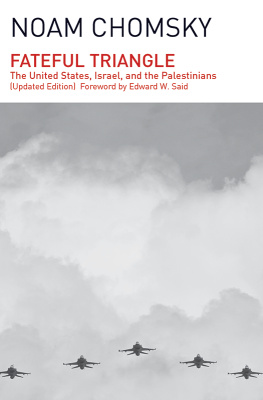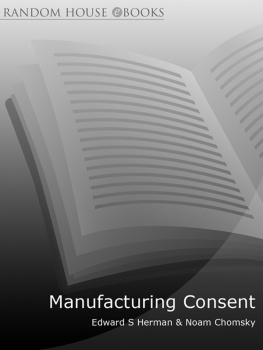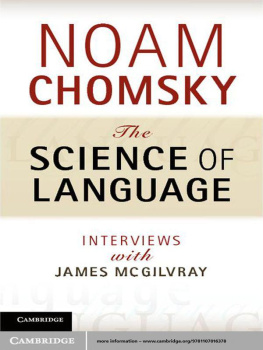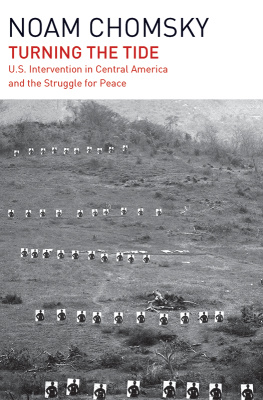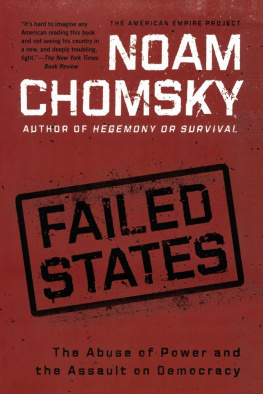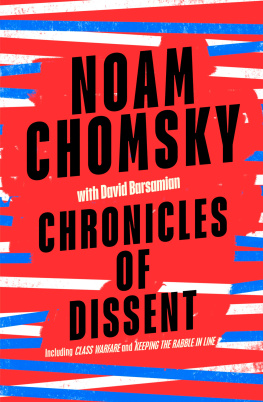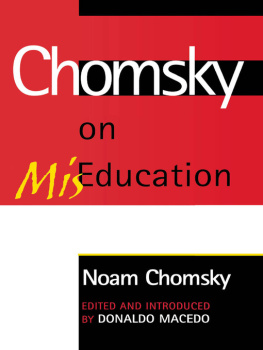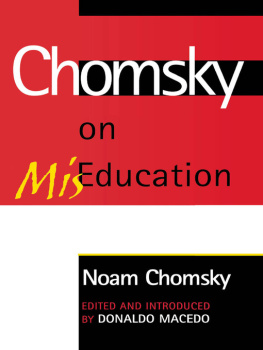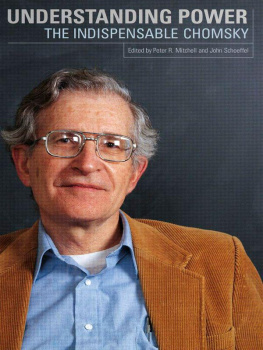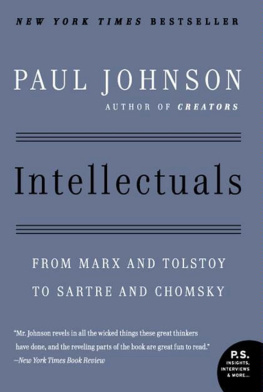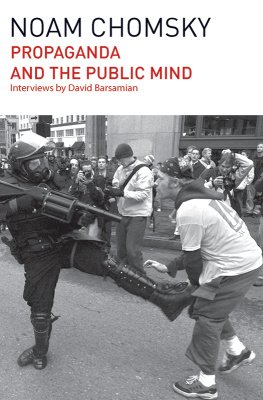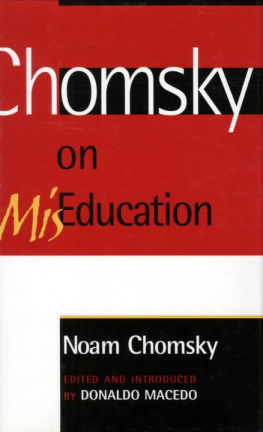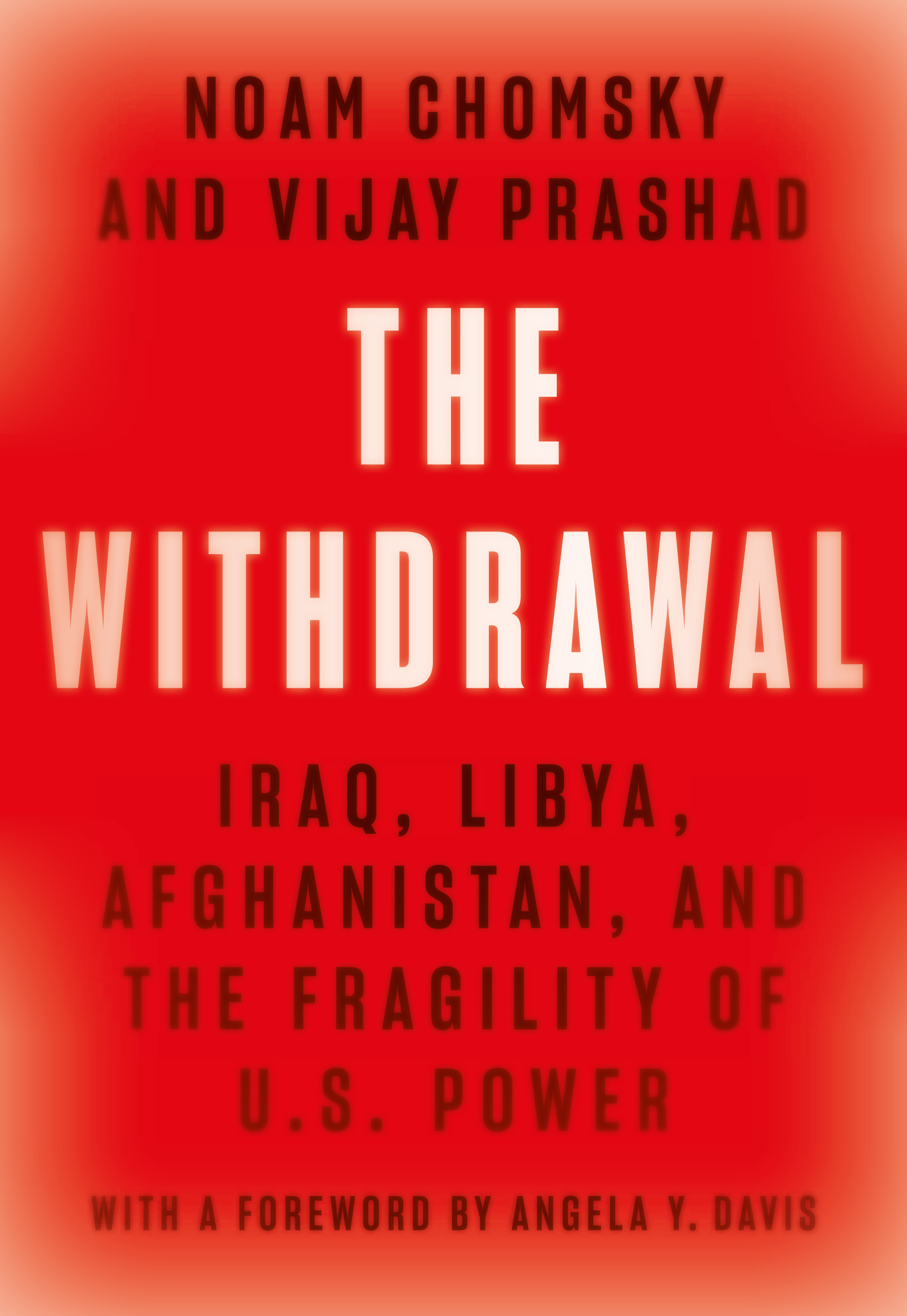Contents
Guide
Pagebreaks of the Print Version
ALSO BY NOAM CHOMSKY
The Cold War and the University
Understanding Power
American Power and the New Mandarins
Towards a New Cold War
Problems of Knowledge and Freedom
Objectivity and Liberal Scholarship
For Reasons of State
The ChomskyFoucault Debate
On Language
The Essential Chomsky
On Anarchism
The Responsibility of Intellectuals
ALSO BY VIJAY PRASHAD
The Karma of Brown Folk
Uncle Swami
The Darker Nations
THE WITHDRAWAL
IRAQ, LIBYA, AFGHANISTAN, ANDTHE FRAGILITY OF U.S. POWER

NOAM CHOMSKYAND VIJAY PRASHAD

Contents
Foreword
For almost as long as I can remember, Noam Chomsky has served as the conscience of a country whose government consistently engages with those parts of the world outside its own sphere of influence by either deploying violence or threatening to do so. Even when we in the United States have endured profound domestic crises, Chomsky has always insisted that we also turn our attention outwards, to avoid capitulating to the assumption that the nation-state, within whose boundaries we happen to live, is the most important political presence of our lives. He has always counseled us to reject American exceptionalism. His germinal essay The Responsibility of Intellectuals resonates today more than ever, especially as we collectively make great efforts to address a range of questions regarding the ways racismand indeed racial capitalismhas structured the social, political, and cultural institutions that define our collective lives in the U.S. He reminds us that there is a geopolitical and historical context to this work. As his collaborator Vijay Prashad also insists, the impact of colonialism and the role of the slave trade and slavery in the development of capitalism have had lasting effects not only in the U.S. but indeed throughout the world.
Although I have been reading Noam Chomsky for decades and have attended his lectures on too many occasions to count, my first opportunity to meet him in person was not until December 2012 when he, Vijay, and I participated in a program at the Berklee College of Music organized by Rachel Herzing and Isaac Ontiveros, representing Critical Resistance (CR). This event was a fundraiser benefiting CR, the LGBTQI prison abolitionist organization Black and Pink, and the City School in Boston, which develops youth leadership for social justice. I retain a particularly vivid memory of this event because just days earlier I came down with a nasty case of the flu and seriously wondered whether I should make the trip to Boston. (Given our experience with the COVID-19 pandemic over the last two years, I now realize I should have probably stayed at home.) But my sense then was that I could not miss the opportunity to meet this historic figure, who had taught me and the world so much about the responsibility of intellectuals. It was a phenomenal event, and though I have little memory of my own contributions, I remember being absolutely captivated by the evenings conversations that unfolded under the rubric Radical Futures and Prospects for Freedom. Our discussion evoked the prison industrial complex as a discernible product of the post-slavery history of the U.S. and of global capitalism as it has developed since the 1980s, and the three of us talked about lessons for abolitionist resistance drawn from anti-imperialist struggles and prospects for the future of internationalism.
I was impressed, as I always am, not only by the immensity of Chomskys command of history and analysis, especially regarding the incalculable wreckages originating with the U.S. military, but also by his unpretentious presence. On this cold Boston night, after the event and reception had concludedI think it was close to 11 p.m.he prepared to leave. Someone asked him about his ride and he responded that, as usual, he would find his way home by bus. Of course half of the people there then volunteered to drive him home. But he never thought of himself as so special as to merit this treatment.
Over the decades during which generations of scholars and activists have been influenced by Chomskys books, interviews, and lecturesindeed he is our countrys preeminent public intellectualhe has always attempted to bring to light the hidden violences, those that are so often assumed to be simply collateral consequences that hardly merit recognition. For instance, he often emphasizes the point that there is a vast discrepancy between the numbers of Vietnamese people who were actually killed during the war (2 million officially acknowledged, but probably 4 million in reality), and the diminished numbers inscribed in our historical memory (in polls and studies, people typically imagine only 100,000 killed as an average). This disturbing difference between fact and perception serves as an example of the ways in which the state-ordered, brazen slaughter of human life can be so cavalierly minimized under the impact of U.S. ideology.
This most recent collaboration with Vijay Prashad continues to explore the theme of ugly wars conducted by the United States. I have long appreciated Vijays insistence on the need for people inside progressive circles to generate a sharper sense of our situatedness within global struggles. Through the structure of a deeply engaging conversation between two of our most important contemporary public intellectuals, we are urged to defy the inattention of the media to the disastrous damage inflicted in Afghanistan on life, land, and resources in the aftermath of the U.S. withdrawal and the connections to the equally avoidable and unnecessary wars on Iraq and Libya. Thank you, Noam and Vijay, for this insightful book which emphasizes the continuities, across time and political parties, of official policies and practices that produce and reproduce these militaristic incursions and offers us the kind of internationalist perspective that is our best chance for the future the world needs.
Angela Y. Davis
Introduction
The Legacy of Ugly Wars
On August 15, 2021, the United States military had to withdraw from Afghanistan after a twenty-year occupation. Little good remained in place as the Taliban entered Kabul and took control of what remained of the Afghan state. The death toll from this war is contested, but few dispute that a few hundred thousand people have perished under fire (a United Nations study found that at least 40 percent of civilians killed by air strikes were children). The Afghan Ministry of Public Health estimates that two-thirds of Afghans suffer from war-induced mental health troubles. Half of the population lives below the poverty line, and about 60 percent of the population remains illiterate. Few gains were made on these fronts.
Meanwhile, the Taliban found that the coffers in the Central Banks offices in Kabul were empty; the reserves$9.5 billionsat in U.S. banks, from which they were now seized by the United States to pay off the families of victims of the 9/11 attack. During the U.S. occupation, Afghanistan relied for its revenues on foreign aid, 43 percent of Afghan GDP in 2020. This collapsed as the United States withdrew; the UN Development Programme calculates a drop in the GDP because of the loss of foreign aid to be 20 percent (2021) and then 30 percent in the following years. Meanwhile, the United Nations estimates that by the end of 2022 the countrys per capita income may decline to nearly half of 2012 levels. It is estimated that 97 percent of the Afghan people will fall below the poverty line, with mass starvation a real possibility. It was telling that the last drone strike by the U.S. military on Afghan soil struck a car carrying ten people, including seven children and Zemari Ahmadi, who drove a car for Nutrition & Education International (a Pasadena, Californiabased charity). The U.S. military first suggested that Ahmadi was an ISIS member, and took two weeks to acknowledge that the Reaper drone had killed civilians; no troops have been punished for this crime.


